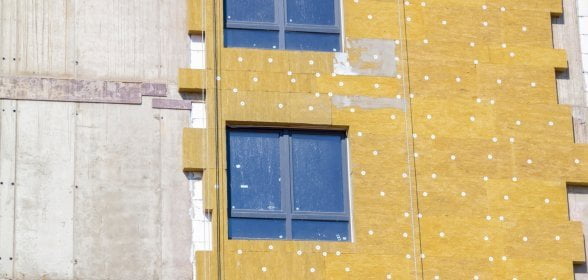Free Call Now
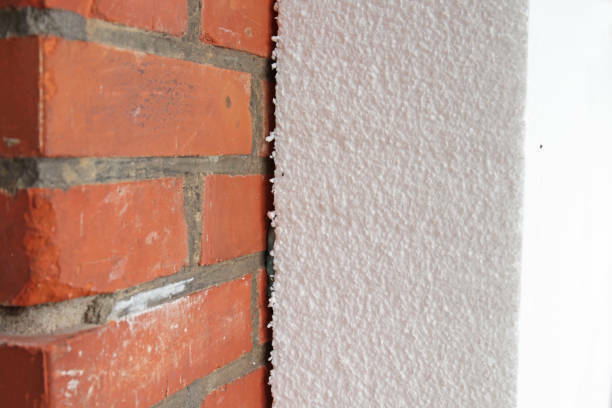
Not many people realise this, but up to 35% of the heat generated by your home is lost through the external walls due to a lack of proper insulation! This astonishing figure will come as a shock to most New Brancepeth homeowners, especially at a time when most are trying to live more sustainable lifestyles and reduce their impact on the environment.
Poor insulation is also bad news for those trying to save money on energy bills; your central heating has to work harder in the winter, and you spend more in summer trying to cool your house down.
At Render Hero, we provide an external wall insulation service that will contribute to lower energy bills and reduce your carbon footprint.
If you want to know more, check out our external wall insulation guide...

External wall insulation, often abbreviated as EWI, is a process that involves adding an insulating layer to the outside of your existing walls. This improves your home's thermal efficiency, making it more energy-efficient and comfortable. It's particularly beneficial for properties built with solid walls before the 1930s, which typically lack cavity wall insulation.
Because of this, it is often called external solid wall insulation.
Cavity walls - with a gap between the exterior wall and internal wall - didn't really become widespread until the housing boom of the 1950s. Even so, many of these properties lack adequate insulation and suffer from rising damp and condensation problems, even those with cavity wall insulation!
There are several types of exterior wall insulation material currently used in the UK, including:
Looking for an insulation solution that's kind to the environment and keeps your home cosy? Look no further than mineral wool fibre, also known as Rockwool. Here's why it might be the perfect choice for your home:
Made from 98% recycled industrial waste, Rockwool boasts impressive eco-credentials. You can improve your home's energy efficiency while minimising your environmental impact.
This first-class insulating material is a fantastic fire retardant. It can withstand extremely high temperatures, providing valuable peace of mind in your home.
This versatile material is a brilliant insulator, muffling unwanted noise from outside and creating a more peaceful living environment.
Unlike some insulation materials, Rockwool can be formed into various shapes and sizes, making it suitable for a wide range of applications in your home, from lofts and walls to cavity wall insulation. It comes in handy pre-cut batts for easy installation.


Looking for an insulation solution that's easy on the wallet? Expanded Polystyrene might be the answer. Here's what you need to know:
It's important to be aware that EPS has one potential drawback compared to some other insulation materials: breathability. EPS has a closed-cell structure, which means it allows less air and moisture to pass through. While this can be beneficial in some situations, like preventing moisture build-up in walls, it's something to consider if breathability is a priority for your project.
Expanded Polystyrene (EPS) has a budget-friendly cousin – XPS, also known as Extruded Polystyrene. While they share some similarities, XPS boasts an extra superpower: superior water resistance.
Unlike EPS, XPS has a tighter, closed-cell structure that makes it highly resistant to water absorption. This makes it a fantastic choice for External Wall Insulation (EWI) applications, particularly in areas exposed to high moisture environments. Rain, sleet, or even snow won't compromise its insulating performance.
Just like EPS, XPS offers good thermal insulation properties. It helps keep the warmth in during winter, reducing your heating bill.
Shares the EPS Advantages
XPS benefits from some of the same advantages as EPS, like being lightweight and cost-effective compared to some other insulation materials.
While XPS offers excellent water resistance, it's still important to ensure proper ventilation and drainage systems are in place for your EWI project.
Phenolic Foam
When it comes to external wall insulation, sometimes space is at a premium. That's where phenolic foam steps in, offering a unique solution for tight spots. Here's why it might be the perfect fit for your EWI project:
Durable and Long-Lasting - Phenolic foam is highly resistant to moisture, fire, and degradation. This ensures your EWI system maintains its peak performance for years to come.

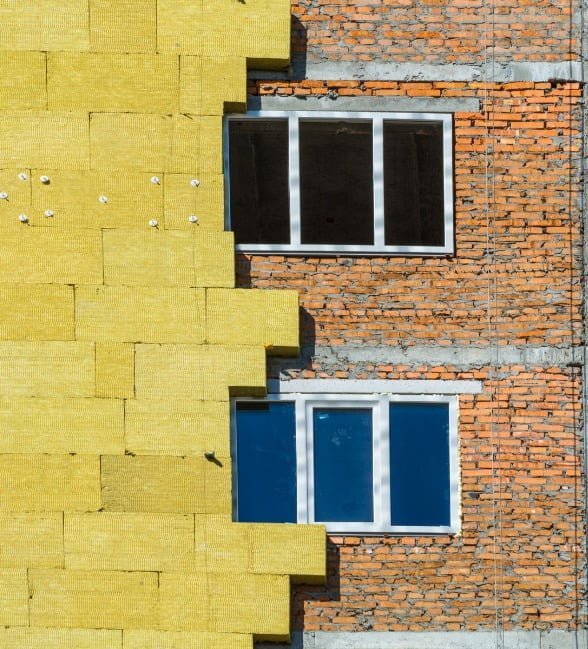
As a professional external wall insulation provider in New Brancepeth, we take pride in transforming homes, making them more energy-efficient and comfortable. Here's a glimpse into the typical EWI installation process:
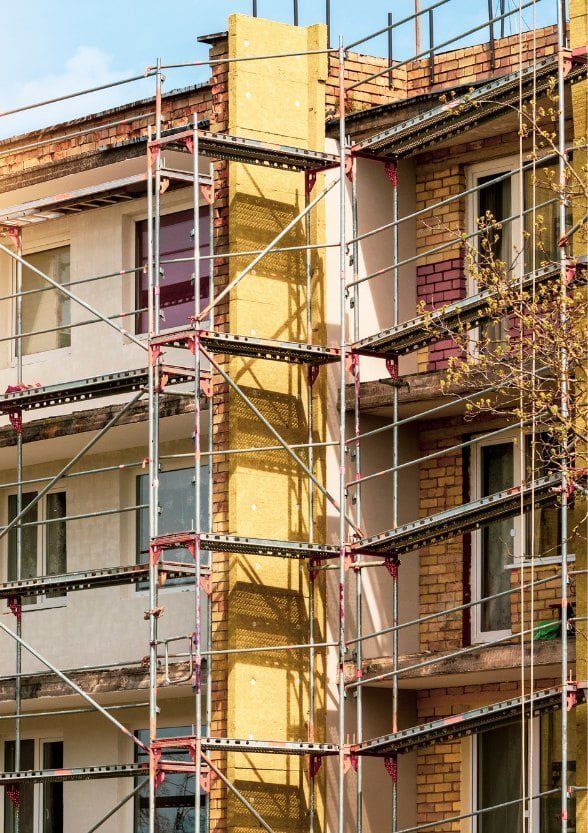
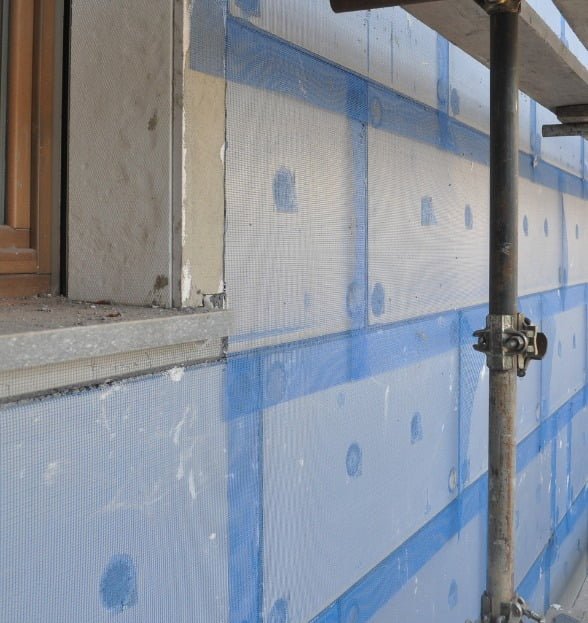
External wall insulation from Render Hero in New Brancepeth offers a range of benefits that can significantly improve your home's comfort, efficiency, and even appearance.
Here are the key advantages:
Energy Savings and Cost Reduction
Increased Comfort and Improved Living
Enhanced Weatherproofing and Durability
Improved Aesthetics and Potential Value Boost
Additional Advantages:
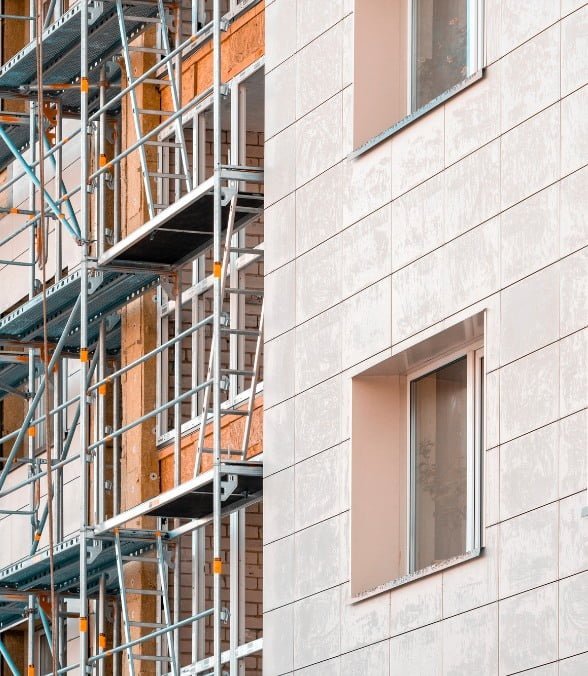
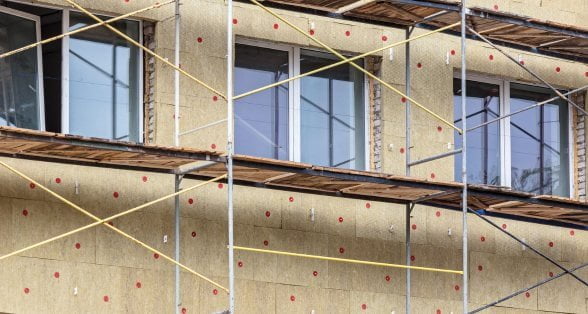
Typical installation costs for external wall insulation in New Brancepeth generally vary between £7,000 and £20,000, depending on the size of the project and the type of EWI material chosen.
While the initial cost of EWI can seem significant, the potential long-term savings on energy bills and the increased comfort of your home can be substantial. Also, you will save money on future external redecoration costs.
Installing external wall insulation generally takes our team between one to two weeks.
It all depends on the size and scale of the project, as well as the type of insulating material chosen. The weather will also play a part, as we may need to postpone and reschedule work during particularly bad conditions.
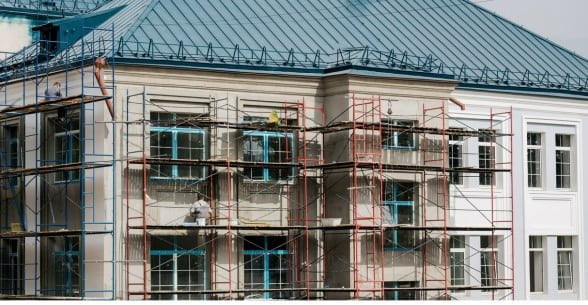
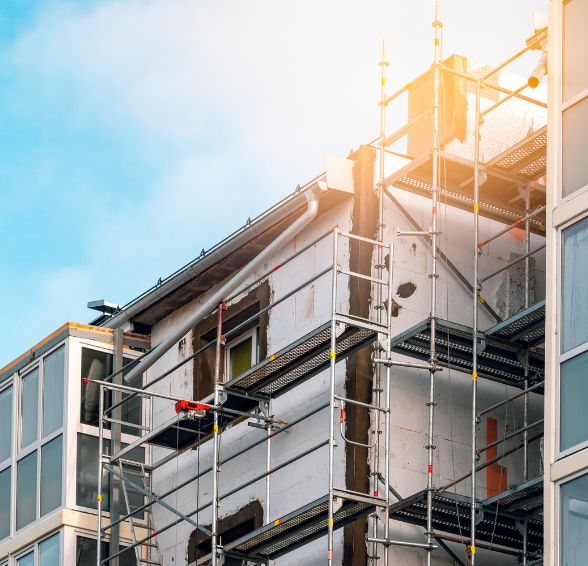
External wall insulation (EWI) often falls under permitted development, meaning you likely won't need permission for most detached houses.
Exceptions
There are some situations where planning permission might be required:
Significant aesthetic changes - Even for non-listed properties, permission might be necessary if the EWI significantly alters the building's external appearance. This could involve factors like the colour, texture, or overall thickness of the insulation system.
Invest in a warmer, more energy-efficient home with Render Hero's expert external wall insulation. Enjoy superior comfort, weatherproofing, and a stunning new look. Contact our New Brancepeth team today for a free quote and transform your home!
